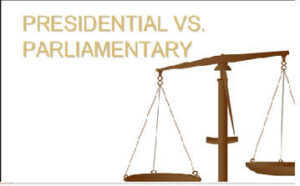Advocates for government funding of the arts argue that it plays a crucial role in fostering cultural development, promoting creativity, and preserving national identity.
They assert that art contributes to the cultural richness of a society, reflecting its values, history, and diversity. Likewise, arts often serve as a focal point for community building. Festivals, performances, and collaborative art projects can bring people together, fostering a sense of belonging and shared identity. Government support helps preserve and promote cultural heritage.
Moreover, the arts and culture sector can stimulate economic activity by creating jobs, attracting tourism, and generating revenue for local businesses. The arts can generate income through various channels and revenue streams. For instance, artists can sell their creations, whether they are paintings, sculptures, photographs, or other forms of visual art. This can be done through galleries, art fairs, online platforms, or directly to buyers. Also, performing artists, such as musicians, actors, dancers, and comedians, can generate income through ticket sales for live performances. This includes concerts, theater productions, dance recitals, and comedy shows.
Besides, arts programs can enhance education by fostering creativity, critical thinking, and problem-solving skills among students. Government funding can support initiatives that provide access to the arts in schools. Such as analyzing and interpreting artworks, whether visual or performance-based, requires critical thinking. This process helps students develop the ability to evaluate information, make informed judgments, and think critically about various subjects. More so participating in the arts often involves expressing oneself through different mediums. Whether it’s through visual art, music, or drama, students can enhance their communication skills, both in terms of expressing ideas and interpreting the messages conveyed in artistic works.
Additionally, art events and cultural institutions can bring communities together, fostering a sense of belonging and shared identity.
Besides, government support for museums, galleries, and cultural institutions helps preserve and showcase historical artifacts, artworks, and traditions for future generations. Exposure to various forms of art provides students with insights into different cultures, historical periods, and perspectives. This exposure fosters cultural awareness, empathy, and a better understanding of diversity.
Critics, however, argue that government funds could be allocated more efficiently to address pressing issues such as healthcare, education, and infrastructure, especially during times of economic hardship. Some argue that the private sector and philanthropy can play a significant role in supporting the arts, reducing the need for government intervention. Concerns also exist about the possibility of government funds being misused or allocated to projects that do not deliver significant public value. In times of crisis or budget constraints, critics argue that funding for the arts may not be a top priority compared to more essential services.
Ultimately, the debate over government spending on art involves balancing the cultural and societal benefits of supporting the arts with other pressing needs and budgetary considerations. Different countries and communities may approach this issue in diverse ways based on their unique cultural, economic, and political contexts.
Traditionally, countries with a strong emphasis on cultural heritage, arts, and cultural diplomacy allocate more funds to support artistic endeavors. France, for instance, has a long-standing commitment to the arts, with substantial public funding for cultural institutions, museums, and various artistic projects. Germany too places a high value on cultural diversity, and both federal and state governments provide substantial funding for the arts, including support for museums, theaters, and cultural events.
Besides France and Germany, the UK has a well-established tradition of supporting the arts through various channels, including the Arts Council England, which provides funding for a wide range of cultural activities.
📍 English Language Educator | Blogger & Content Strategist | 7+ Years in Educational Blogging
Nosheen Bashir is a dedicated English teacher and experienced blogger with over seven years of expertise in content creation and educational writing. Passionate about language, literature, and effective communication, she combines her teaching experience with blogging skills to create insightful, research-backed content that helps learners and educators alike.
🔹 Expertise & Achievements:
✔ English Language Education: A skilled educator with years of experience in teaching English grammar, literature, and communication skills to students of varying levels.
✔ Educational Blogging: Running a successful blog for 7+ years, delivering well-structured, engaging content on language learning, writing techniques, and academic success.
✔ SEO & Content Strategy: Specializes in creating high-ranking, authoritative articles that follow Google’s EEAT principles, ensuring content that is both informative and search-friendly.
✔ Student-Centric Approach: Committed to making English easier, engaging, and accessible, helping readers and students improve their language proficiency.
🚀 With a passion for teaching and writing, Nosheen Bashir is dedicated to crafting educational content that empowers students, teachers, and language enthusiasts worldwide.









